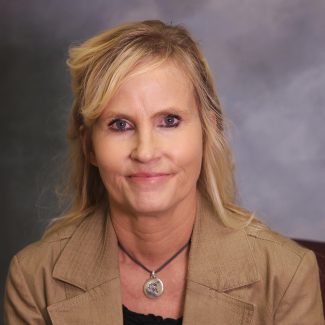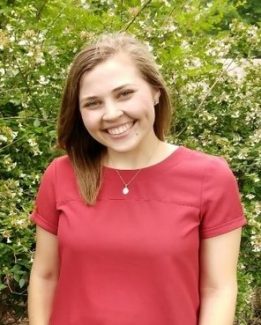Faculty in the Newman School of Education program are hard at work placing students in internships for the spring semester.
Sandy Bequette, early childhood unified and elementary coordinator, said the program places student teachers in the community every fall and spring semester. Students complete three semesters of content courses and practicums before reaching the semester during which they will intern as a student teacher. A total of nine students in the program will be placed into schools during the spring semester.

“For their student teaching semester, they’ll go out and work in a school like a full-time teacher and gradually replace that teacher with the duties,” explained Bequette. “They stay in it for the entire semester, and once the internship is up, they’re done and they’ll apply for jobs. Many times, internships will lead into jobs if there are openings at the school.”
The students have an enormous amount of support during their internships, including the cooperating teacher from the school where at which they student teach, a university supervisor and a class titled “The Art and Science of Teaching,” in which they learn valuable communication skills and motivation techniques.
Bequette said, “The course gives them a place where they will come and meet, get expectations of the internship — and they also attend a meeting where they have their cooperating teacher and the university supervisor. University supervisors can be faculty, sometimes we hire adjuncts. They’ll go out and observe them a minimum of five times to give them feedback on their teaching. We all come together during the semester and talk about expectations.”
The faculty at Newman also works hard to stay connected with each of the schools in the community, keeping an open line of communication and maintaining relationships with staff at the schools.
“Once the students have finished practicums, they fill out a teacher internship packet,” said Bequette, “and they can identify schools that they would like to work in. Then Dr. (Max) Frazier, who’s in charge of our internship placements, works with Juanita Alarcon, School of Education administrative assistant, to contact the area schools to see if they’d be open to having an intern. We try to give them first choice but that doesn’t always work.”
Students must meet certain requirements before an internship as a student teacher.
“In order to be an intern,” said Bequette, “they have to have a certain grade point average, they have to have all their coursework completed and we also ask for recommendation letters from faculty, so it’s kind of a process. They also write an essay. All of this allows us to look at our interns and ask, ‘Are they ready, is there anything we need to do?'”

Natalie Hertel will be starting her internship at St. Anne’s Catholic School in Wichita, Kansas, when classes resume Jan. 16. Her long-term goal is to eventually teach in a kindergarten up through second-grade classroom at a Catholic school in the Wichita Diocese.
“I have been at St. Anne’s all semester doing observations,” said Hertel. “For our Elementary Mathematics class, we are required to observe both an upper elementary and lower elementary classroom. For that reason, I started observing in fourth grade and switched to first grade during the middle of the semester.
“I am participating in a program called, ‘Professional Development Schools.’ Essentially,” Hertel continued, “this means that Newman has a partnership with St. Anne’s. Additionally, it means that I am placed at St. Anne’s all year instead of at different schools for my observations this semester and my student internship next semester. This has been proved very valuable for me as I have been able to build relationships with the students and faculty prior to beginning my student internship.”
Hertel said she has gained real-life experience throughout her time in the education program at Newman.
“Most of the classes include a practicum component where we are placed at a school and then complete observations hours and teach a few lessons,” she said. “This is an extremely valuable portion of the class because you are actually practicing teaching children. What you think is a great lesson plan can turn into a disaster when you actually teach it.”
Hertel said she is looking forward to the internship this spring, knowing she will gain “experiential knowledge” and learn how to teach students at all levels of learning within the same classroom.
“There are so many things that you cannot learn in a classroom environment. This is why our observation hours and internship are so essential to the education program. A teacher never knows what unexpected things are going to occur within the course of one day. It’s always an adventure!”

